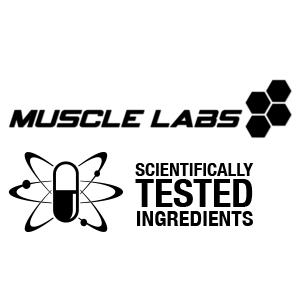Is Soy Good for Bodybuilding?
In this article, I will assess the pro’s and con’s of soy-based foods and disseminate research studies and expert opinions to arrive to a reliable conclusion about whether or not offering any real benefit to bodybuilding.
Common word of mouth and some studies have it that soybean-based foods contain estrogenic properties that will halt anabolic and growth processes in bodybuilders. Unfortunately, the problem with information is that there are two kinds: information and misinformation.
In this article, I will assess the pro’s and con’s of soybean-based foods and disseminate research studies and expert opinions to arrive to a strong and formidable conclusion about soy being a bodybuilder’s friend or foe. Often times in the fitness industry, hot new trends get a spin.
What Are the Different Types?
A type of legume, eaten whole or processed into a variety of forms.
Whole Soy Products
Whole soybean products, the least processed and include soybeans and edamame, immature (green) soybeans. Soy milk and tofu, also made from whole soybeans.
Rarely eaten whole in the Western diet, edamame is a favorite high-protein appetizer in Asian cuisines.
Soybean milk, made by soaking and grinding whole soybeans, boiling them in water and then filtering out the solids. Commonly used as a milk alternative by people who cannot tolerate dairy or wish to avoid milk.
Tofu, made by coagulating soybean milk and pressing the curds into blocks. A common source of plant-based protein in vegetarian diets.
Fermented Soy
Fermented soybean products are processed using traditional methods and include soy sauce, tempeh, miso and natto.
Soybean sauce is a liquid condiment made from fermented soy, roasted grains, salt water and a type of mold.
Tempeh is a fermented soybean cake that originated in Indonesia. Though not as popular as tofu, it’s also commonly eaten as a source of protein in vegetarian diets.
Miso is a traditional Japanese seasoning paste made from soybeans, salt and a type of fungus.
Soy-Based Processed Foods
Used to make several processed foods, including vegetarian and vegan meat substitutes, yogurts and cheeses.
Texturized vegetable protein and soybean oil, used in many packaged foods.
Soybean Bodybuilding Supplements
Soybean protein isolate, a highly processed derivative of soybean. Made by grinding soybeans into flakes and extracting the oil. The flakes, then mixed with alcohol or alkaline water. Heated, and the resulting soy concentrate is spray-dried into a powder.
Soybean protein isolate steroid like supplements for weight gain. Available in many protein powders and also added to many processed foods, such as protein bars and shakes.
Other soybean supplements include soy isoflavones, available in capsule form, and soy lecithin, consumed as capsules or as a powder.
Soybean has been part of traditional Asian diets for thousands of years. In fact, there’s evidence that soybeans were grown in China as early as 9,000 BC. Today, soy is widely consumed, not only as a source of plant-based protein but also as an ingredient in many processed foods. However, soy remains a controversial food — some praise its health benefits, while others claim it could be bad for you.
Soy is a good source of several keynutrients.
For example, one cup of edamame contains the following:
Calories: 189
Carbs: 11.5 grams
Protein: 16.9 grams
Fat: 8.1 grams
Fiber: 8.1 grams
Vitamin C: 16% of the Reference Daily Intake (RDI)
Vitamin K: 52% of the RDI
Thiamine: 21% of the RDI
Riboflavin: 14% of the RDI
Folate: 121% of the RDI
Iron: 20% of the RDI
Magnesium: 25% of the RDI
Phosphorus: 26% of the RDI
Potassium: 19% of the RDI
Zinc: 14% of the RDI
Manganese: 79% of the RDI
Copper: 19% of the RDI
Soy also provides small amounts of vitamin E, niacin, vitamin B6 and pantothenic acid (4).
Furthermore soy contains, prebiotic fiber and several beneficial phytochemicals, such as plant sterols and the isoflavones daidzein and genistein.
The health effects, noted for many years. It continues today to be one of the healthiest foods that you can eat for a variety of different reasons. Men tend to eat much less soy than women do, although the effects of it for them can be extremely positive.
Here are five reasons why men need more soy :
1.Strengthen your bones.
Although women are more prone to brittle bones and bone loss, men still need to make sure they get enough calcium to prevent osteoporosis. Soy is a great way to get the calcium that you need.
2.Lower your cholesterol.
Eating about a third of a cup of soy daily will lower the “bad” cholesterol levels in men. High cholesterol can lead to artery blockage, stroke and heart disease.
3.Diabetes.
While Soy is very low on the glycemic index and it will not raise blood sugar levels much, making it a great choice for diabetics. Also giving you energy without giving you the sugar spike associated with some carbs.
4.Building muscles.
Soy provides a large amount of protein with few calories, making it a perfect choice for men who want to build muscle but keep their body lean.
5.Protects against prostate cancer.
Men have a very high probability of getting prostate cancer if they do not look after themselves or get regular checkups. Soybean contains isoflavones which may hinder the development of prostate cancer.
Found in a number of different foods these days. Tofu, soy dogs, soy milk, and soy cheese are all easy sources of food. Soybeans, easily prepared and used for ingredients in soups, sauces and stews.



